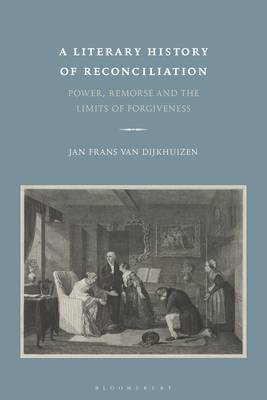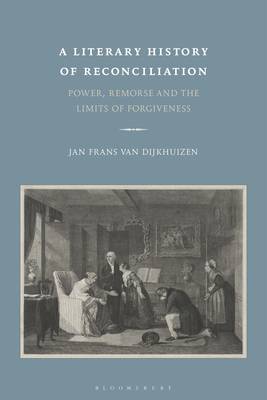
- Retrait gratuit dans votre magasin Club
- 7.000.000 titres dans notre catalogue
- Payer en toute sécurité
- Toujours un magasin près de chez vous
- Retrait gratuit dans votre magasin Club
- 7.000.000 titres dans notre catalogue
- Payer en toute sécurité
- Toujours un magasin près de chez vous
A Literary History of Reconciliation
Power, Remorse and the Limits of Forgiveness
Jan Frans Van Dijkhuizen
Livre broché | Anglais
76,45 €
+ 152 points
Format
Description
From William Shakespeare to Marilynne Robinson, this book examines representations of interpersonal reconciliation in works of literature, focusing on how these representations draw on the language of divine forgiveness. Christian theology sees divine forgiveness as conditional upon a sinner's remorse and self-abasement before God, but also as a form of grace - unconditional and rooted only in divine love. Van Dijkhuizen explores what happens when this paradoxical forgiveness paradigm comes to serve as a template for interpersonal reconciliation.
As A Literary History of Reconciliation shows, literary writers imagine interpersonal reconciliation as being centrally about power and hierarchy, and present forgiveness without power as longed for but ever elusive. Drawing on major works of literature from the early modern era to the present day, this book explores works by John Milton, Virginia Woolf, J.M. Coetzee, Ian McEwan and others to craft a literary history that will appeal to readers interested in literature, religion and philosophy.Spécifications
Parties prenantes
- Auteur(s) :
- Editeur:
Contenu
- Nombre de pages :
- 248
- Langue:
- Anglais
Caractéristiques
- EAN:
- 9781350154841
- Date de parution :
- 19-03-20
- Format:
- Livre broché
- Format numérique:
- Trade paperback (VS)
- Dimensions :
- 156 mm x 234 mm
- Poids :
- 349 g







